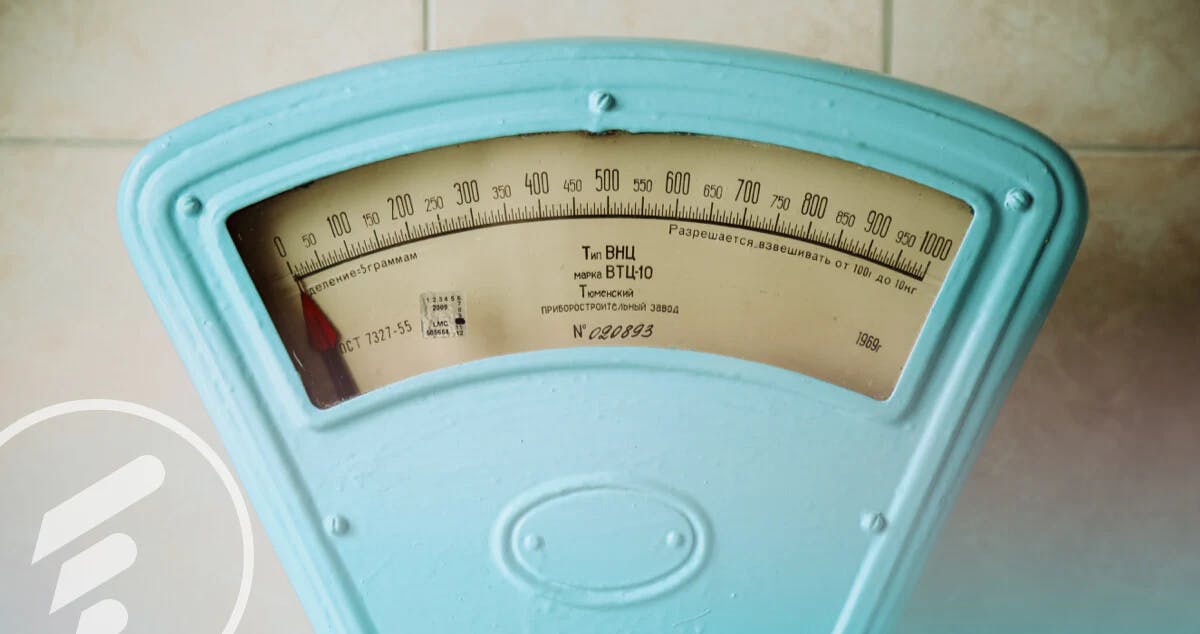
5 Reasons Your Weight May Fluctuate
Everything seems to be going smoothly; you’re sticking to your macros, you’re crushing all your workouts, and you’re on your way to realizing your fitness goals like the boss you are! Then you step on the scale and see that the number has suddenly gone up. What’s going on?
First of all, don’t panic. Weight fluctuation is extremely normal during a fitness journey, and it’s nothing to throw in the towel over. In fact, there are lots of natural causes that could be leading to your weight going up and down. Here are five to consider:
1. YOU’RE NOT GETTING ENOUGH SLEEP
Sleep plays a critical role in your weight and well-being. But when you don’t get enough sleep, it can result in hormonal changes that affect your appetite and hunger. Leptin, the hormone responsible for regulating hunger and energy expenditure, is reduced when you’re sleep deprived.
Lack of sleep can also wreak havoc on your diet, resulting in increased cravings for fatty and sugary foods. It can even make you more likely to become impulsive with your eating and less likely to make healthy decisions in the kitchen.
2. YOUR MUSCLES ARE GROWING
You know those days when you’re just on? You killed your leg workout and you stuck to your diet, but you woke up 5 pounds heavier than the day before. What gives?
Lifting weights or doing strength training of any kind can result in daily weight fluctuations. That’s because strength training creates small tears in your muscles, and your body produces lactic acid to fill those tears. You know the feeling of lactic acid—it’s that burning sensation you get on the StairMaster or on your last set of 60-second body-weight squats.
After a vigorous workout, your muscles may swell as a result of lactic build up, and they will begin to store water and use it to repair the damage. The process of repairing these micro tears is what causes your muscles to grow and develop. That progress within your body can look like a higher number on the scale, but it means your body is doing its job!
3. YOUR WATER INTAKE IS HAVING AN IMPACT
If you consume too little water, it can cause your body to retain fluids instead of flushing them out.
Water helps your liver convert fat into energy, but when you don’t consume enough water, that can result in your kidneys becoming backed up. Backed up kidneys have to rely on your liver to do the extra work. All of that can ultimately mean your body is unable to convert fat into energy and will retain water to reuse. All that retention can result in visible inflammation.
4. YOU'RE ON YOUR PERIOD
You’ve just gotta love when Aunt Flo comes to town! Many women experience some degree of bloating before and during their menstrual cycles as a result of fluid retention. While it hasn’t been scientifically proven that you gain weight during your period, some research states that changes in your hormone levels can increase your food cravings.
So while hormonal changes don’t increase your weight, the foods you eat can! But there’s good news: your body burns more calories when you’re on your period, and movement may help decrease the discomfort of menstrual cramps.
5. YOUR SODIUM INTAKE IS HIGH
Sodium is a vital nutrient for the human body, but too much of it can cause problems. Consuming foods high in sodium may result in a spike on the scale the following day. High-salt foods lead to increased water retention which, in turn, can pack on the pounds.
Keep an eye out! Just because you’re not going heavy on the salt shaker doesn’t mean you aren’t a victim of high-salt consumption. Frozen meals, deli meats, soups, and everyday condiments are also packed with sodium. Your best bet is to pay attention to the sodium content on nutrition labels, even if it’s a product you wouldn’t assume to be high in salt.
THE BOTTOM LINE
No matter what the scale is doing, it’s important to remember that progress isn’t linear. Every person’s body is different, and no two fitness journeys look alike. Remember to listen to your body, hit your macros, drink plenty of water, and get a good night’s sleep. And if the number on the scale is moving around a little bit, don’t worry—consistency day after day will take you to the finish line.